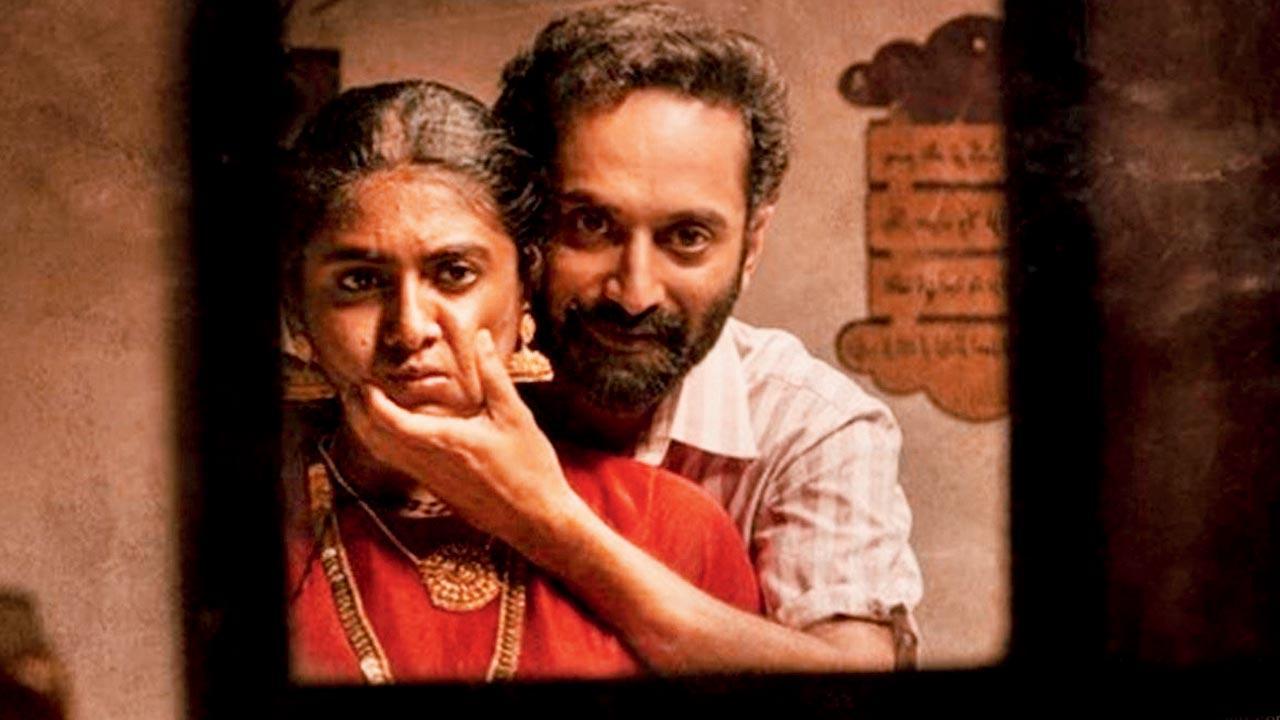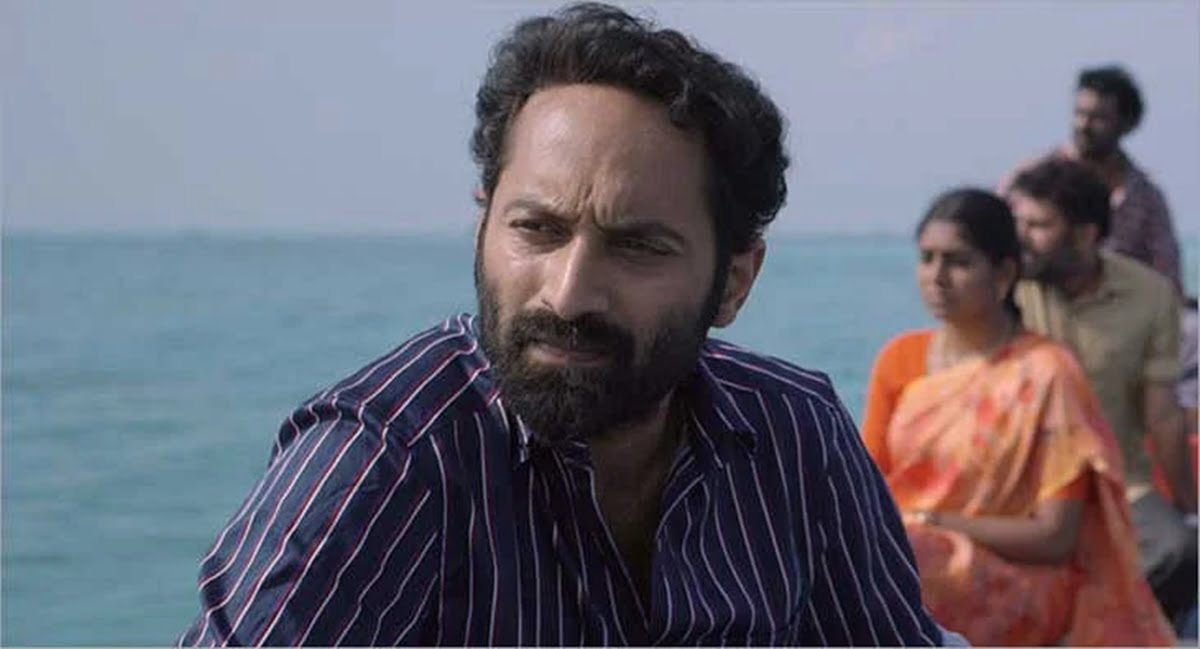Cinema plays an intricate role in mirroring reality: both what it is and what it could be. Popular narratives have predominantly been constructed by those in power, and often at times, a facade of reality is presented to those ignorant to the truth. A call for untangling such flawed and biased understandings of reality is necessary and can only be done through its assessment from multiple perspectives. Beneath the epic political crime drama that Mahesh Narayanan’s Malik (2021) is, it is this untangling of multiple stories that the film provides through the character of Freddy, a naive school-kid who has multiple revelations before finally realising who the Malik of his locality truly is and what he stood for.
Beneath the epic political crime drama that Mahesh Narayanan’s Malik (2021) is, it is this untangling of multiple stories that the film provides through the character of Freddy, a naive school-kid who has multiple revelations before finally realising who the Malik of his locality truly is and what he stood for.
Malik can be interpreted as a scathing critique of how those in power change narratives to prosper and propagate their agenda while simultaneously scapegoating others. While the opening credits do mention how “This is a work of fiction” one cannot unsee the resemblances to the Beemapally shooting of 2009. The film presents itself as a story centred around the tension and violence between coastal communities of Muslims and Christians from Ramadapally. While its 2 hours 40-minute runtime may seem daunting to audiences, this decision of Narayanan is justified as Malik, the film efficiently establishes the environment and the social constructs of the coastal society, provides depth to its characters and their dynamics and sets up the overall tone of the movie in an immersive manner, resulting in a tense and engaging experience. Its nonlinear storytelling and bildungsroman in narrating the tale of Sulaiman Ali through flashbacks in itself emphasise the need for society to look to its past to understand its present better and unveil the facades presented before it, hegemonic and oppressive.
Also read: Film Review: Malik – A Political Drama Where The Poet’s Hero Clashes With The Director’s
The audience is introduced to the world of Sulaiman Ali (affectionately called Ali Ikka) as an alien viewer into his bustling household as he prepares for his pilgrimage to Mecca. The opening 12+ minute extended tracking shot and subsequent use of CCTV cameras to capture the events unfold makes audience aware that they are viewers of the action and distance themselves from the characters. This seems to be a conscious decision by Malik‘s director as later audiences have to visualise the movie from the perspective of Freddy. He, similar to the audience, is unaware and alien to the past events that unfolded in Ramadapally, which have led to the fractious circumstances the film finds itself in. Audiences follow Freddy as he is a recipient of three stories that narrate the history of Ramadapally by closely following the life of Ali Ikka characterised by smuggling, his romantic affiliations with Roseline, his love for his community and political involvement in protecting it from capitalists and “development” policies put forward by corrupt politicians.

Freddy symbolises the youth of today, ignorant to truth, believers of an objective reality presented to them with no idea of what remains in the shadow and the invisible hands at work, passing down generations of hate and senseless violence. He initially bases his understanding of the situation and contemplates his decision to kill Ali on the bribe the police provide him; protection and freedom from imprisonment. Ali‘s mother then gives him the first account of Ali‘s life as she attempts to give him more clarity in the actions he is about to commit and tells him of how she believes Ali deserves legal punishment and not death at the hands of his nephew over hate that has accumulated communally. He then gets the account that covers the rise to prominence of Ali during his teenage to adult years, from his parents, David and Mary, who both despise Ali, believing him to favour Muslims over Christians. Finally, he hears from Ali himself and realises that both sides were mere victims of circumstances without any direct intention to hurt the other. He comes to the realisation that there were invincible hands at work that led to the chaos and birth of communal segregation.
Both Malik And Judas and The Black Messiah are political crime dramas based on real-life happenings. Both Sulaiman Ali and Fred Hampton are Messiah-like figures who put forward values of kinship and go to great lengths in bringing together diverse communities under the same banner.
While multiple sources compare Malik to Nayakan (1987) and The Godfather (1972), it is perhaps a more recent film that I have found Malik to be more intriguingly similar to; Judas and The Black Messiah (2021) by Shaka King. Both films are political crime dramas based on real-life happenings. Both Sulaiman Ali and Fred Hampton are Messiah-like figures who put forward values of kinship and go to great lengths in bringing together diverse communities under the same banner. While they propagate admirable messages, they are unheroic in their means to an extent, and subsequently, the directors have shown their deaths as quick, inconsequential, undramatic and anything but cathartic. David, Aboobakar and William O’Neal are the Judas figures, traitors who seem to side with the protagonist but whose selfish desires take over and ultimately lead to the collapse of the shared community. While it is the fear of subjugation of his community that drives David, selfish greed is what leads Aboobakar and O’Neal in committing heinous actions.
Also read: Kumbalangi Nights And The Progressive Turn In Malayalam Cinema
Both films seem to question autocratic institutions, and the powers opposing them are silenced by the same. It is this silencing that needs focal attention, as the deaths of Hampton and Ali are framed in a manner that depict them as plagues to society. While the institutions created to uphold law and order do have blood on their hands, they are not held responsible, and instead, the blame is shifted, and narratives changed. Nothing is made clear, and all characters remain ambiguous. Only the audience knows what transpired and who the culprits are. While in real life, FBI director J. Edgar Hoover has been rightly identified as corrupt and unjust for his involvement in the killing of Fred Hampton and fellow Black Panther Party members among numerous other crimes, victims of the Beemapalli shooting are yet to receive justice for their losses.
Both films attempt to untangle the fake narratives imposed on them, and while Judas and The Black Messiah commemorated Fred Hampton’s life and death, Malik is indifferent in how it puts more emphasis on trying to shed light on the wrong-doers of society rather than glorify its hero. Towards the end of the film, we are shown how a socially sensitised Freddy realises his mistake and that of his parents, of being blinded by bigotry, and rightfully points out who/what the actual plague is: PA Aboobackaer and corrupt politics. He represents hope and the need for the common man to be aware of the hands that frame fake narratives and the need to untangle it. These two stories spanning across two distant continents universalises the actions of those in power to frame such narratives and cover their actions while also showing their utter lack of empathy for the common man.

As Malik progresses, audiences bear witness as two coastal communities that previously lived together in harmony, free from the prejudice of religion, tear each other apart and eventually ends with the murder of the singular individual that worked to protect the whole community. Narayanan’s craft should be commemorated for the scenes like the one where Ali tells David that he would marry his sister under the statue of Jesus as it seems to embrace the mosque on the other side of the bay. Institutions of law and order designated to maintain peace and protect the common man, in turn, become the site of violence and corruption. Ironically enough, it is a doctor who commits the murder, an individual sworn to save lives. She is neither a Christian nor a lackey of the police but another victim of circumstances who believes Ali Ikka intentionally attacked her father. Confusion and chaos reign supreme, allowing politicians and police to exploit the situation and eliminate the people that stand in the way of their personal gain. Narratives are twisted, and blame shifted, order is lost, but for those consumed by the lust for power, control is regained.
Krishnanunni P is currently pursuing his Master’s degree in Film and Literature from the University of York. He is an ardent fan of Football and Dance but also prefers to spend time immersed in Literature, Philosophy and Cinema. He is on a personal pilgrimage to tell the artistic stories of Malayalam Cinema. You can find him on Instagram and Twitter.
Featured image source: Exchange4Media




Anupama Hospitals of successful experience in women’s health with services in store for all age groups. Our list of services includes gynecology consultation, surgeries for gynecological issues, age-specific health checks, gynecology specialty clinics, cancer screening and vaccinations. for more info visit here:-https://anupamahospitals.com/